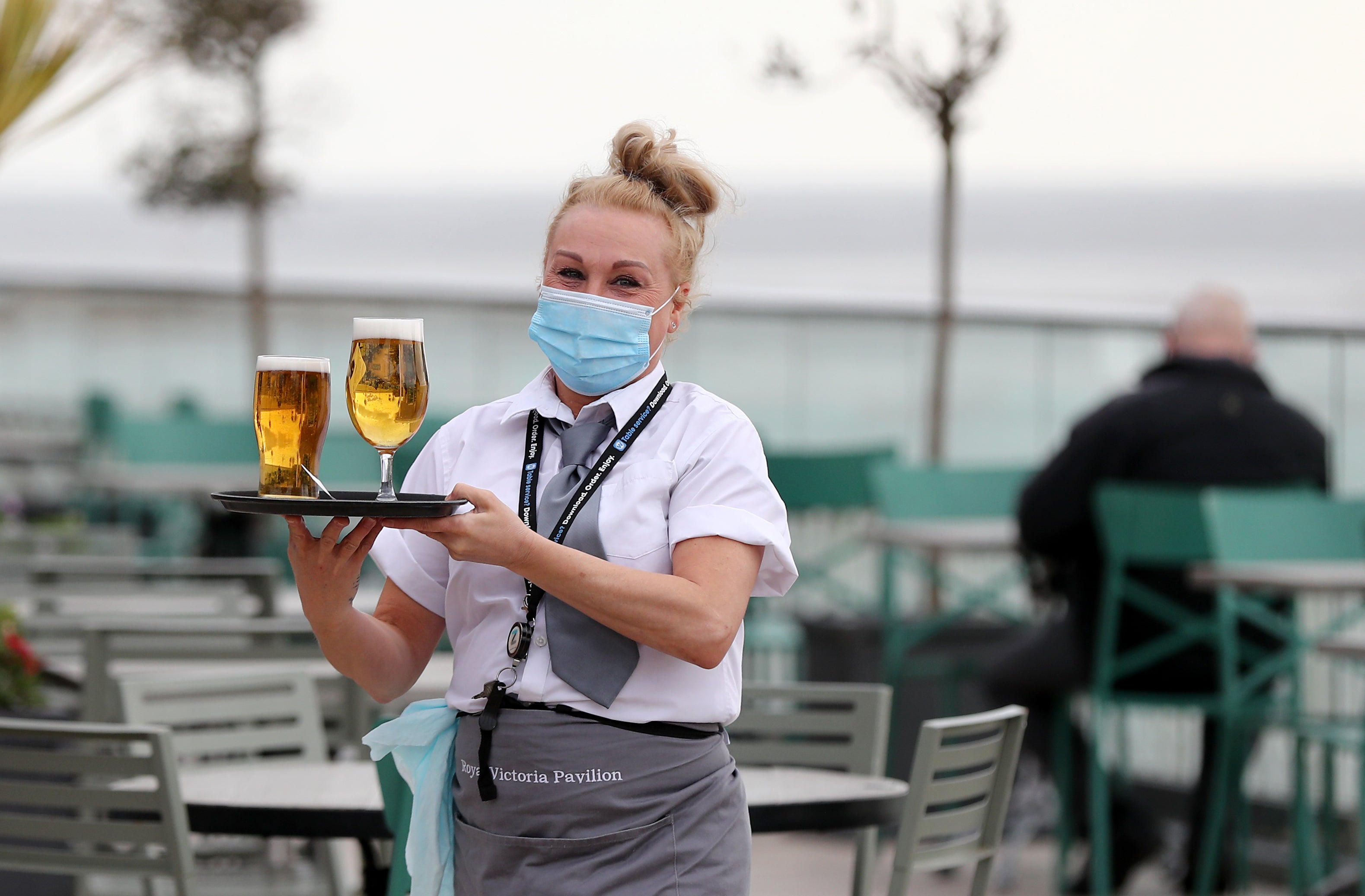Surging inflation leads to sharp slowdown in UK service sector
The closely-watched IHS Markit/CIPS UK services PMI survey scored 53.4 in May, tumbling from a 58.9 reading in April.

Your support helps us to tell the story
From reproductive rights to climate change to Big Tech, The Independent is on the ground when the story is developing. Whether it's investigating the financials of Elon Musk's pro-Trump PAC or producing our latest documentary, 'The A Word', which shines a light on the American women fighting for reproductive rights, we know how important it is to parse out the facts from the messaging.
At such a critical moment in US history, we need reporters on the ground. Your donation allows us to keep sending journalists to speak to both sides of the story.
The Independent is trusted by Americans across the entire political spectrum. And unlike many other quality news outlets, we choose not to lock Americans out of our reporting and analysis with paywalls. We believe quality journalism should be available to everyone, paid for by those who can afford it.
Your support makes all the difference.The UK service sector suffered its worst performance for more than a year last month as rocketing inflation dragged on consumer demand.
The closely-watched IHS Markit/CIPS UK services PMI survey scored 53.4 in May, tumbling from a 58.9 reading in April.
Any score above 50 shows growth in the sector.
However, this represented the weakest figure since February 2021, as companies highlighted “subdued business and consumer confidence” due to concerns over the economic outlook.
Tim Moore, economics director at S&P Global Market, said: “May data illustrate a worrying combination of slower growth and higher prices across the UK service sector.
“The latest round of input cost inflation was the steepest since this index began in July 1996, while the monthly loss of momentum for business activity expansion was a survey record outside of lockdown periods.”
Surveyed service firms witnessed “escalating energy, fuel and raw material costs”, while wages were also pushed higher.
Around 70% of companies reported a rise in their average costs since the previous month.
The data for May also highlighted that there was a survey-record increase in prices charged by service providers to customers, which they said affected demand.
In addition, the report signalled a slowdown in new order growth across the sector, with the rate of new business expansion dropping to its weakest since December last year.
Nevertheless, companies also reported another robust improvement in staffing numbers for the month.
Duncan Brock, group director at the Chartered Institute of Procurement & Supply, said: “One bright spot was strong employment levels.
“Job-seekers still had the pick of the bunch in terms of roles and requested salaries but, as capacity levels are reached and new order gaps appear, the window of opportunity is starting to close.
“The sudden fall in the overall index is a cause for worry and was reflected in the sector’s optimism, which was the lowest since the height of the pandemic in October 2020.
“Recessionary fears are growing bigger and stronger amid the realisation that 2022 as the year of stable recovery has not materialised yet.”